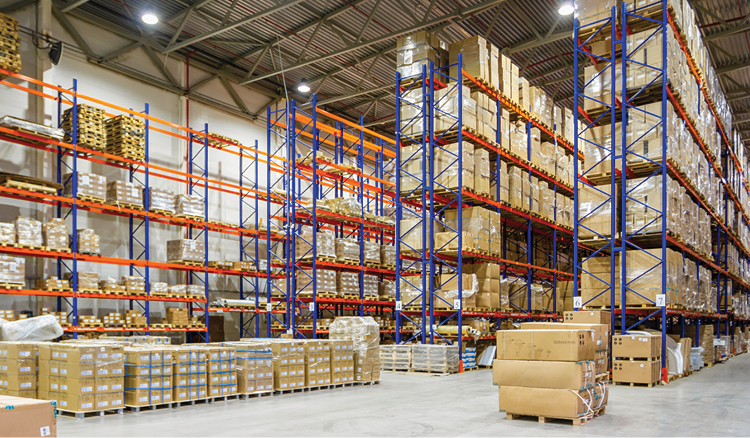The Benefits of a Rating and Review System for Workers and Businesses
When you shop for something, you look for ratings and reviews by other people. In the age of the Internet, that’s just how it goes. But even before the Internet, word of mouth was how people decided between Bill’s shop or Bob’s.
It makes sense that you would want to do the same when searching for something as important as bringing in new workers. But we all know how the old song and dance goes when you post work opportunities: piles of resumes, calling applicants’ references, and wild guesses about whether a worker will last a week or a year.
At Veryable, we work to eliminate this problem with our on-demand labor marketplace. We’ve put in place a rating and review system that creates accountability for workers using the platform to find work.
We aren’t the first technology company or marketplace to implement a rating and review system, and we certainly won’t be the last. While we’re biased towards this system because we’ve seen it work, we do think it is worth sharing what we’ve seen so that you can decide if it sounds better than the traditional method of reading resumes and calling references.
In this article, you will learn how rating and review systems in labor marketplaces make finding workers easier and can build your company’s reputation.
Reviews are more reliable than resumes
In a system that enables reviews, when a business leaves a review based on their experience with a worker, you get to see what they really thought of that person’s time at the company.
On a resume, the worker is in charge of what shows up. They can leave out important details or even entire chunks of their work history to make their story look more appealing.
Unlike a resume, with reviews the worker can not sugarcoat the story told by their work history. Businesses can see more information about the worker that’s based solely on the impression they left with other companies in the past.
Ratings provide a clear scale for comparison
When it comes to choosing a worker, there are a few primary concerns: proficiency, safety, attitude, and timeliness. With resumes, there is no way to tell one worker from the other based on these metrics.
Many rating systems have a cumulative score that’s been built by previous businesses rating the worker. And because each worker’s score is a number on a scale, you can easily compare it to other scores and decide which workers you would like to work with.
Sure, these ratings will always be subjective, which doesn’t make this a perfect comparative tool. But at least with a rating system you get the benefit of a number that makes it easy to compare options before digging into further details if you want to take that extra step.
Ratings and reviews create transparency and accountability
When workers and businesses receive ratings and reviews, they are held accountable for their actions. And when reviews and ratings are easily visible to anyone in the marketplace, this transparency strengthens the accountability created by this system.
Ratings and reviews allow people and businesses to build or break trust over time. Transparent systems let both sides of the marketplace hold the other accountable.
Ratings and reviews reward good work, not time spent
With resumes, time spent in roles is often a prerequisite for a job. There’s no denying this information is useful as it’s an indicator of experience. Let’s say you need to find someone with a specific skill that takes years to master. In this case comparing their resume with how long it takes to master a skill is a good rule of thumb for understanding their experience. It isn’t as conclusive as proof of their skill in the form of results, but it is useful.
This information is less useful when you’re looking for workers in roles where the training does not take years. Time spent in a role in this case could mean nothing more than the worker showing up and not failing miserably enough to get fired.
With ratings and reviews, you can see what businesses thought of the actual work that was done. There is more insight into what matters: Was the work done well? Was the worker good to work with? Was the worker safe?
Businesses offering the best opportunities attract the best candidates
When workers rate your business well, it will signal to other workers that your company is a good place to work. This will attract more workers to choose your company instead of others.
Ratings and reviews also show workers whether a business is actually a desirable place to work or just selling a polished image of a bad work environment.
This means that in the long run, your company will win over good workers if you maintain a good work environment and provide good opportunities.
Examples of ratings and review systems in labor marketplaces

Most of the labor marketplaces available today have a rating system, review system, or both. We saw this when we rounded up the best on-demand staffing companies. All four of the companies we listed there have rating systems for workers, and two of them allow workers to rate businesses as well.
At Veryable, we have a rating and review system that goes both ways between workers and businesses. This system rewards good work and businesses that treat workers properly.
We empower businesses to rate workers on a 5-star scale in four areas: proficiency, safety, attitude and timeliness. Additionally, we've recently introduced operator endorsements - with this feature businesses can endorse certain skills or experiences that an operator possesses, as well as specific aspects of their character and work ethic. Not only does this help businesses make more informed decisions about the operators they select, but it ensures that the highest performing operators are rewarded for their hard work.
To see ratings earned by workers in your area and get started with on-demand labor, create your free business profile.
To learn more about the meritocratic nature of the Veryable platform's rating & review system, click here.
Previous Posts
From Activity to Outcomes: A New Standard for Publicly Funded Manufacturing and Workforce Programs
The Future of Manufacturing and Logistics
Create a free business profile today to explore our platform.






